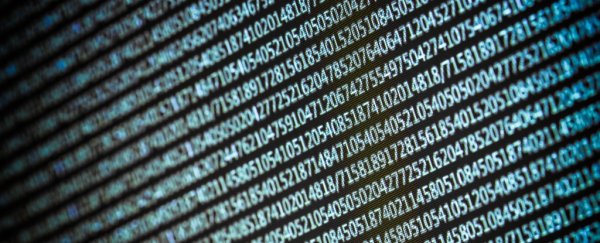A newly discovered prime number has broken the record for the largest ever found, coming in at a whopping 23,249,425 digits. It's called M77232917, and it's the 50th prime number of its type ever discovered.
It's called a Mersenne prime, which is found by multiplying twos together many times, and subtracting one from the final number. M77232917 was found by multiplying 77,232,917 twos, and then subtracting one.
That puts it nearly one million digits higher than the previous largest prime number, also a Mersenne prime. And it makes it way too large for us to type out for you on the site.
As numbers get larger, prime numbers - a number divisible only by 1 and itself - become very difficult to find. They become farther and farther apart, and there's no pattern to their distribution, so it's not as simple as using an algorithm.
Even the formula for finding Mersenne prime numbers - named after the 17th century French monk who studied them, Marin Mersenne - isn't a surefire method, it's simply a method for narrowing down a more likely place to find them.
So after using the formula to create a number, you then have to go through the arduous process of testing it, dividing it by every number that could possibly be a factor. For large numbers, this takes quite some time.
Software can search for the Mersenne primes and test them, which is what was used to find M77232917.
As part of the Great Internet Mersenne Prime Search (GIMPS), volunteer Jonathan Pace, a 51-year-old electrical engineer from Tennessee, made the find running specialised software on his PC. He's been hunting primes for 14 years, and this is his first find.
The number itself was found on 26 December, 2017. Proving its primality took six days of non-stop computing. Following this, four different software programs running on four different hardware configurations also tested the number to verify the find.
The previous record Mersenne prime was discovered in January 2016, coming in at 910,807 digits fewer than M77232917.
The new record is so large that it would take a whopping 9,000 pages if printed out, or stretch 118 kilometres at 2 digits per centimetre (73 miles at five digits per inch).
Why search for primes? M77232917 is too large to be useful for this purpose, but encryption uses large prime numbers simply because they are so difficult to find. Combine two prime numbers for your encryption key and you'll have something that's a lot harder to crack - and, as the average computer gets more powerful, those primes need to be larger in order to keep up.
They may also help us understand prime numbers themselves. If we find enough, maybe eventually a pattern will emerge.
But for mathematicians, both amateur and professional, those large prime numbers have become something of a treasure hunt - quite literally, with GIMPS offering monetary prizes for new records.
Pace will receive US$3,000 for his find - although, given how long he's been hunting, his new position on the GIMPS leaderboard is nothing to sneeze at.
Pace is just one name credited with the discovery of M77232917. GIMPS founder George Woltman who wrote the software, Scott Kurowski who created the PrimeNet system software that coordinates GIMPS computers, current PrimeNet administrator Aaron Blosser and thousands of GIMPS volunteers are acknowledged in the discovery.
If you want to join the hunt for the 51st Mersenne prime, you can download the software here, and find instructions here.
And if you like, you can download M77232917 here.
